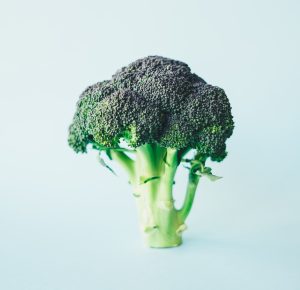 If you’re like most people in Louisiana, you began to focus on ways to live and eat healthier during the pandemic. That means eating foods that contain loads of nutrients that can boost your immune system and make your body stronger. For many years, it’s been known that broccoli was one of those healthy foods and more recent studies show it can be a powerful cancer fighter, thanks to all the phytochemicals it contains. Other diseases and conditions those chemicals battle include arthritis, heart disease, hypertension, kidney disease and diabetes.
If you’re like most people in Louisiana, you began to focus on ways to live and eat healthier during the pandemic. That means eating foods that contain loads of nutrients that can boost your immune system and make your body stronger. For many years, it’s been known that broccoli was one of those healthy foods and more recent studies show it can be a powerful cancer fighter, thanks to all the phytochemicals it contains. Other diseases and conditions those chemicals battle include arthritis, heart disease, hypertension, kidney disease and diabetes.
Broccoli helps prevent DNA damage by helping protect the cells.
Broccoli has a lot of phytochemicals that are antiviral, antibacterial and antifungal. Those same naturally occurring compounds also help detox the cells, are anti-inflammatory and not only slow the growth and spread of cancer cells, but also kill cancer cells. It’s not just compounds like sulforaphane, phenolic compounds. Diindolylmethane and glucoraphanin, it’s the fiber, vitamins and minerals, too. Broccoli is a cruciferous vegetable and like all crucifers, it has glucosinolates, substances that contain sulfur, which not only fight disease, but give the broccoli and other cruciferous vegetables their slightly bitter taste and distinct odor.
Sulforaphane is just one of the potent cancer fighters, but a very important one.
Sulforaphane is important to maintain proper replication of the cell’s DNA. That helps them reproduce healthier cells and limits mutations that can lead to cancer. Ironically, it also encourages cell death, but it’s the defective cells it gets rid of, in the colon, kidney, bladder, prostate, breast, lung, brain, thyroid, tongue and skin. Just three servings a week of broccoli or other crucifers, such as Brussels sprouts, cauliflower and cabbage can lower the risk of cancer by as much as 60%. It contains anti-inflammatory compounds that fight more than just cancer, but also heart disease, Alzheimer’s, diabetes and more. It also protects the cells from free radicals.
The glucosinolate glucoraphanin defends broccoli plants, and they can defend your body, too.
Glucoraphanin is a precursor to the cancer cell blocking phytochemical sulforaphane/ Sulforaphane not only blocks cancer cells and prevents them from forming, but it also prevents them from multiplying. Broccoli also contains Diindolylmethane—DIM, which boosts the immune system so it kills cancer cells more effectively. It’s especially effective fighting cancers that have to do with sex hormones, like ovarian, prostate or breast cancer.
- While broccoli has a lot of glucosinolates, broccoli sprouts have as much as twenty times that amount. Sprinkling a few on a salad or including them in smoothies a few times a week can boost your protection.
- Excess estrogen can convert into dangerous forms of estrogen that can lead to breast cancer. The DIM in broccoli helps prevent that from happening. Cultures that include more cruciferous vegetables in their diet, like Asia, have a lower incidence of estrogen-related cancers.
- Broccolini, also called baby broccoli, has a milder taste that people who don’t like broccoli find palatable. It is also more potent with more concentrated cancer fighting phytochemicals.
- While researchers do not know how powerful the anti-cancer compounds are, they also warn they can be destroyed by overcooking. Eating sprouts or lightly steaming broccoli for 2 to 4 minutes is best.
For more information, contact us today at Wellness On A Dime Coaching
